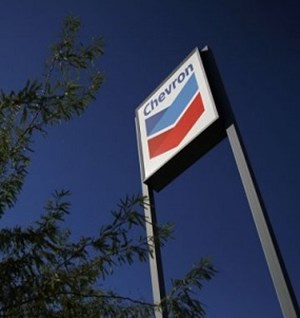Concerns mount over Chevron-Hess merger amidst Guyana geopolitical risks
(Bloomberg) — Traders are more jittery than ever about the outcome of Chevron Corp.’s proposed $53-billion takeover of Hess Corp. as Venezuela threatens to seize mineral-rich regions in neighboring Guyana.
Hess shares fell roughly 5% this week as the conflict escalated, Chevron slid less than 1%. Stock in Hess — which generated nearly a quarter of its revenue from Guyana last year — traded nearly $14 below the value of the all-stock bid at from the oil giant on Thursday, the widest gap since the deal was announced. Hess shareholders will receive 1.025 shares of Chevron for each Hess share.
RELATED: Chevron to increase Guyana, Bakken shale production with $53 billion Hess acquisition
On Nov. 28, before a Venezuelan referendum claiming vast stretches of neighboring Guyana — including its offshore oil fields — the gap was around $3.50.
Escalating geopolitical tensions between the two South American countries have caused merger arbitrage investors to reprice the deal risk, as they assess the prospect of this year’s second largest oil merger getting delayed or unraveling. Hess’ investments in offshore oil fields in Guyana accounted for about 23% of its 2022 revenue, according to Bloomberg compiled data.
While analysts said the chances of an armed conflict are low, just the threat of military action by Venezuela may “discourage investment” in Guyana’s offshore oil fields, according to Benjamin Salisbury at Height Capital Markets. Production in the country is driven by an ExxonMobil Corp.-led consortium that includes Hess, he wrote in a note dated Thursday.
Investors appeared to be positioned in the options market to protect against a further drop in Hess shares.
A total of 16,500 of the $115 puts expiring in June were bought — giving the owner the right to sell 1.65 million shares at that level — and half as many $180 calls were sold. Along with the calls, it appeared $130 puts expiring Dec. 15 were also sold, likely to help finance the June puts while risking owning shares on a further 2.9% decline in the next week.
Meanwhile, the mega-merger received a second request from the Federal Trade Commission on Friday. The antitrust agency is running an in-depth merger review.
The companies are targeting to close the deal in the first half of 2024.



